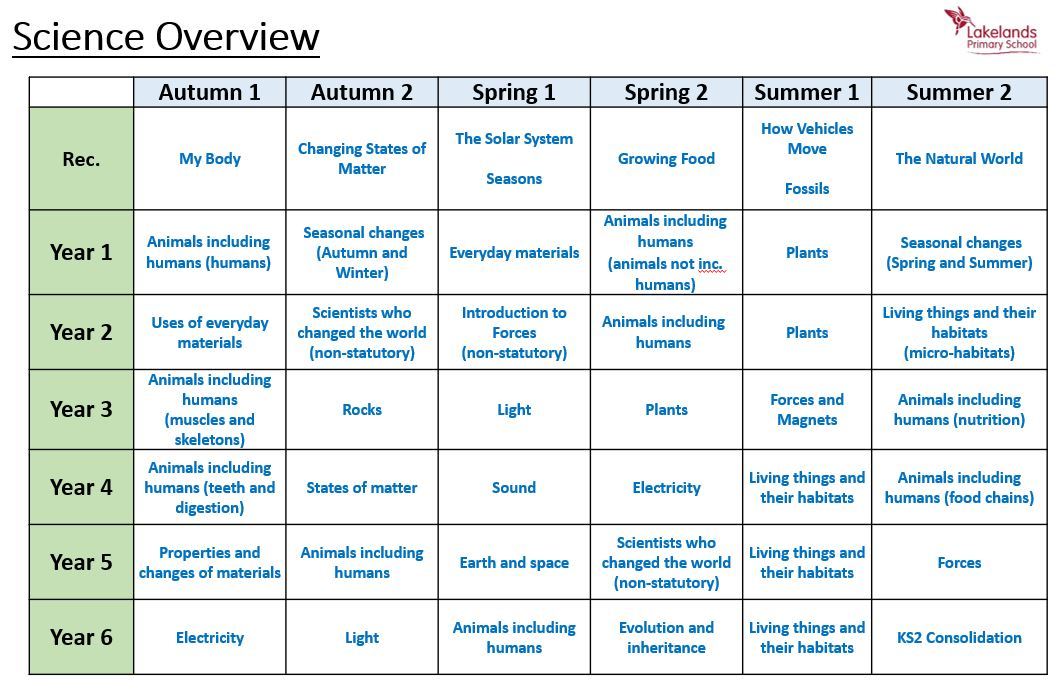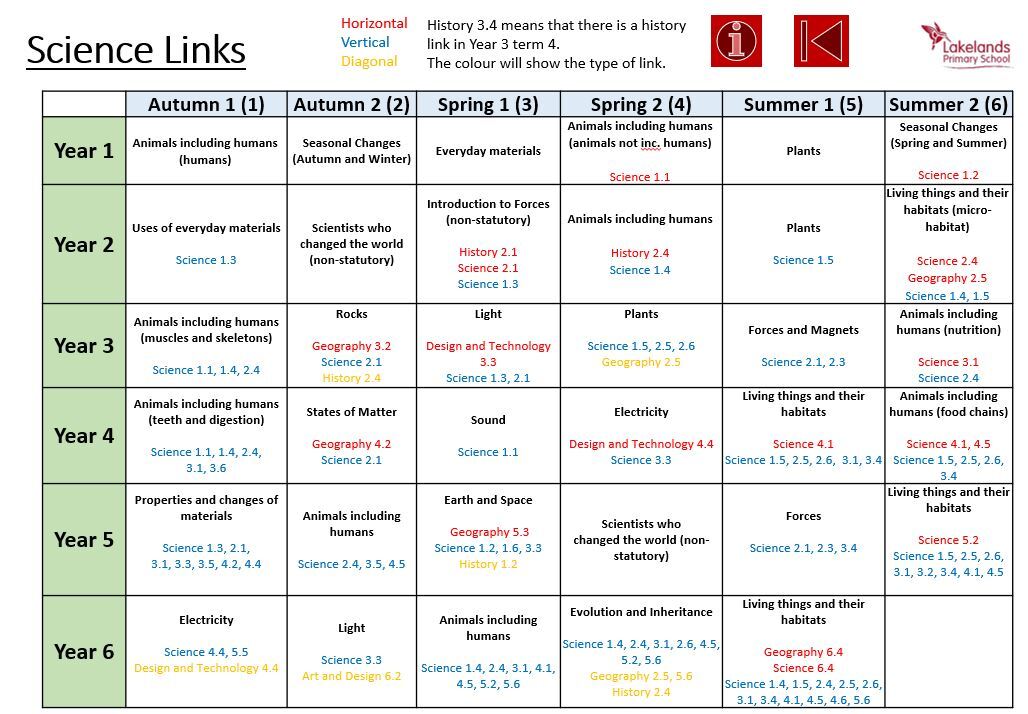Science
At Lakelands Primary School, we teach our pupils (from Year 1) discrete subjects. This means that we teach pupils what it means to be scientists. Pupils will understand that in Science, we learn about the natural and physical throough observations and investigations.
"The natural world is a wonderful place. Almost all of us have stared into a flower or at the night sky with awe and wonder. As far as we know, we are the first living creatures to have sought to explain the universe and where we fit into it. Science provides one of the most effective ways for doing so."
Essential Primary Science, Second Edition
Science Curriculum Overview

Scientific Knowledge and Skills Coverage
All subjects in our Science curriculum are designed to cover the following key areas:
- Working Scientifically
- Life processes
- Variation and diversity
- The environment
- Materials
- Rocks and soils
- Forces
- The Earth in space
- Electricity
- Sound
- Light
Across the school, we teach Science to help pupils acquire and develop a repertoire of skills and knowledge so that they increase their understanding of how scientists work.
The following core concepts underpin the teaching of Science:
- Classifying
- Questioning
- Predicting
- Observing
- Comparing
- Recording
- Evaluating
We use these to support teacher knowledge and improve lessons:
- Knowledge organisers
- Skills progression through adapting the Essentials Curriculum
How is Science Taught?
These concepts are planned and articulated in our half-termly planners and help pupils understand the knowledge taught. We plan a coherent curriculum to ensure that scientific knowledge is built upon. Each unit of has been mapped purposefully with authentic connections based on prior learning or act as building blocks for future units. For example, pupils learn about biomes in Geography in Year 2, which provides the foundations for pupils learning about climates and habitats in later year groups.
Each lesson starts with a 'Let's Recap' section which enables pupils to recap on prior knowledge, and ends with a cumulative knowledge quiz to support pupils to remember significant facts. We also use Knowledge Organisers to support pupils to retrieve and learn significant facts (see below).
Enrichment Opportunities in Science
There are various ways in which we enrich the pupils' scientific knowledge and skills beyond individual Science lessons:
- Trips and visits, including the farm and Colchester Zoo
- Themed STEM weeks
- The design of the Lakelands Curriculum means that pupils will have scientific links to other areas of learning (especially Design and Technology and Geography).
- Assemblies - some examples of these can be found at the bottom of this page.
Science Links with other curriculum areas (including EYFS)
In EYFS, the foundations are laid so that pupils are prepared for the Science curriculum in Year 1. Pupils use key scientific skills of exploring, investigating, observing and classifying though carefully planned activities in their continuous provision. They also learn facts about how plants grow, and use books such as 'Suprising Sharks' and 'Yucky Worms' which are closely linked with the Early Learning Goal of Understanding the World (The Natural World).
​In the rest of the school, the units of learning for Science have been carefully positioned so that they either reinforce prior learning across the curriculum (e.g. in Geography or History) or act as foundation / building block for learning to built on at a later stage.

Knowledge Organisers
For our Knowledge Organisers, please see below.
Science Year 1 - Animals, including humans (animals)
Science Year 1 - Animals, including humans (humans)
Science Year 1 - Everyday Materials
Science Year 1 - Seasonal Changes (Autumn and Winter)
Science Year 1 - Seasonal Changes (Spring and Summer)
Science Year 2 - Animals, including humans
Science Year 2 - Introduction to Forces
Science Year 2 - Living Things and Their Habitats
Science Year 2 - Uses of Everyday Materials
Science Year 3 - Animals, including humans (muscles and skeletons)
Science Year 3 - Animals, including humans (nutrition)

